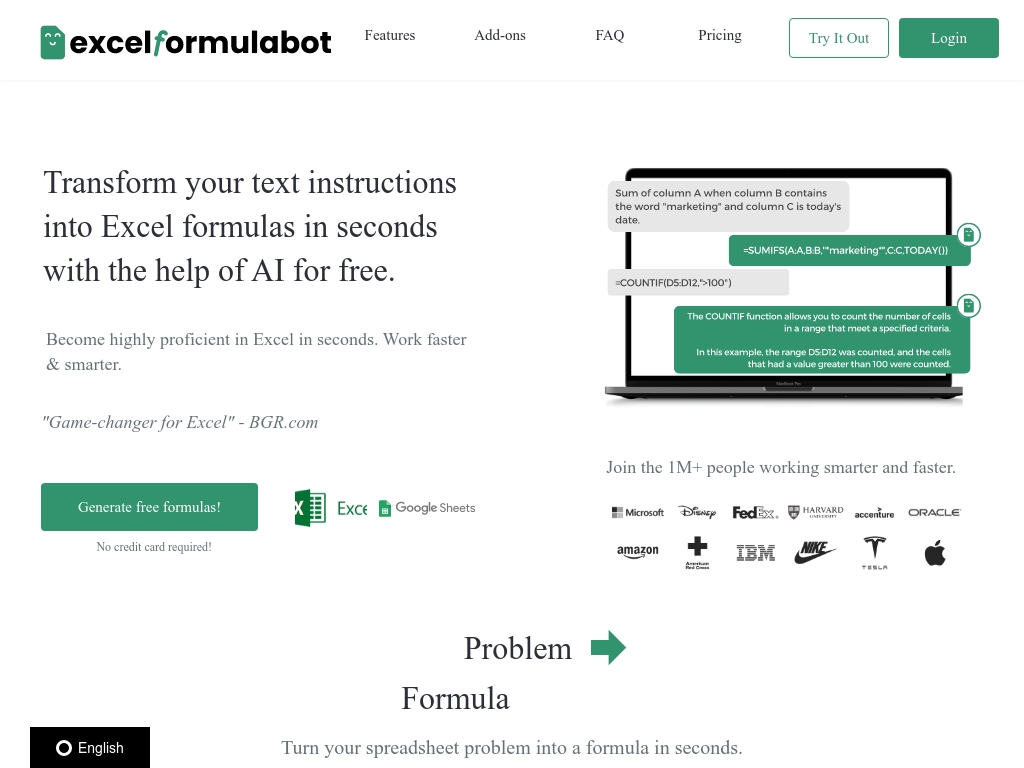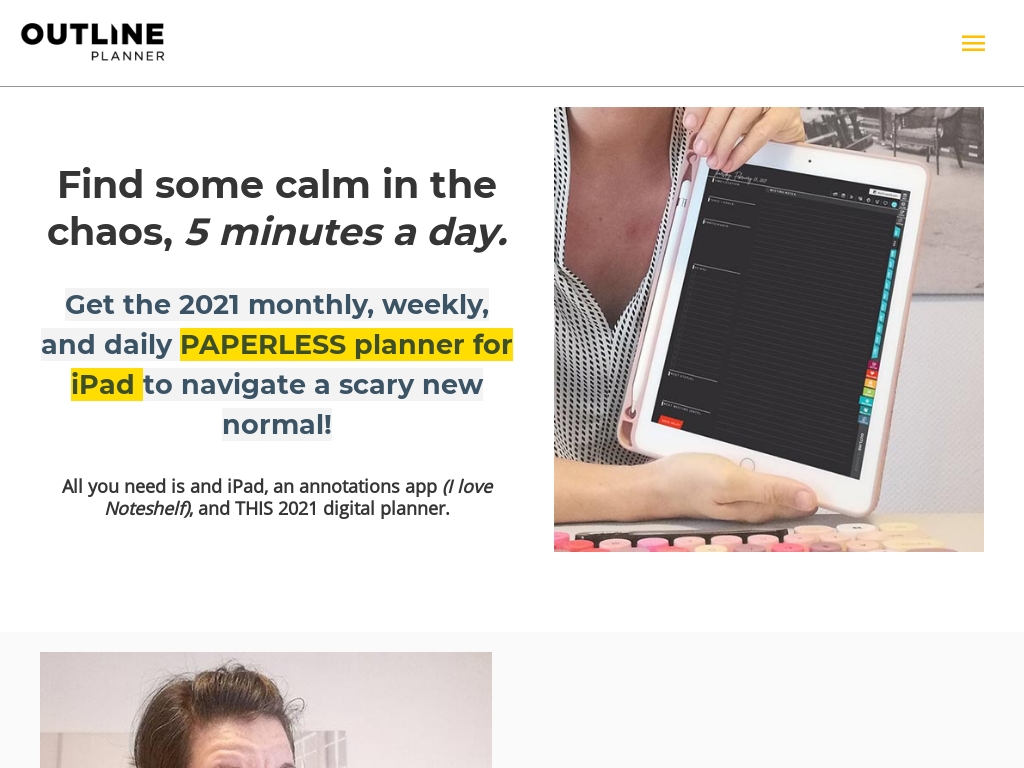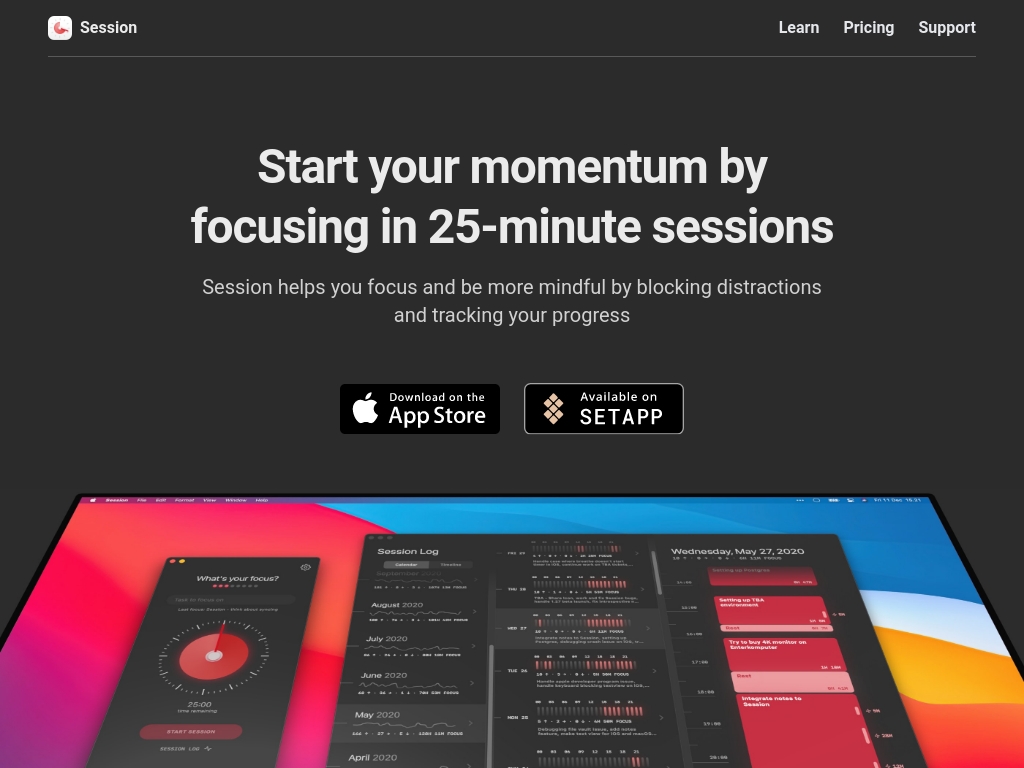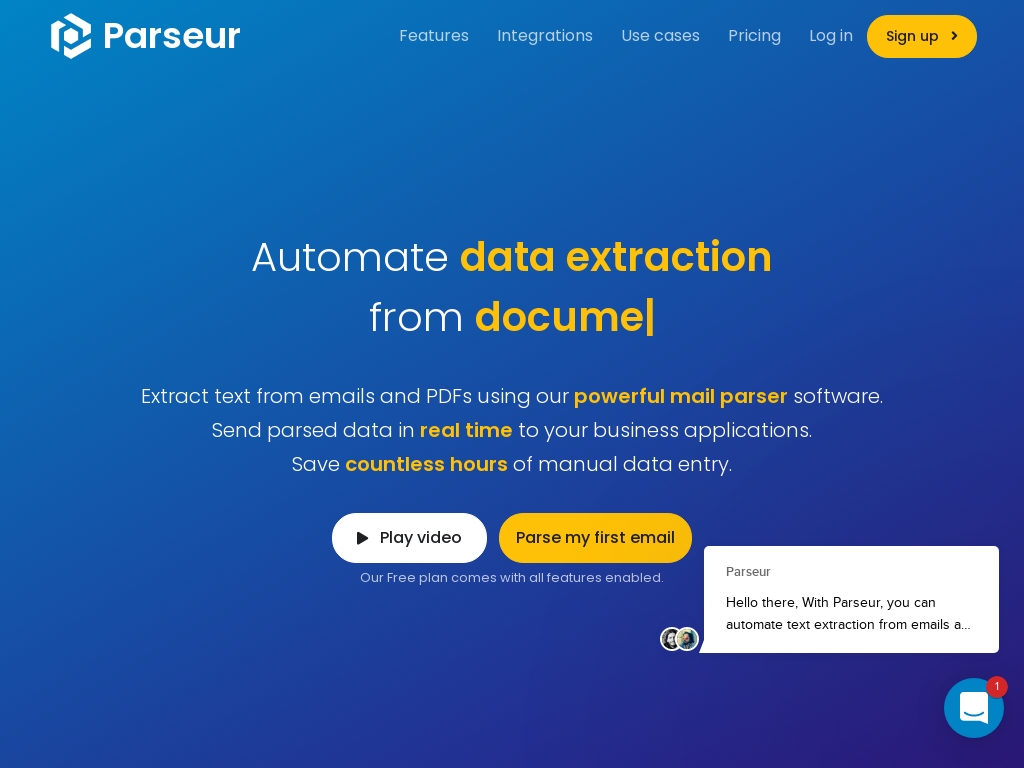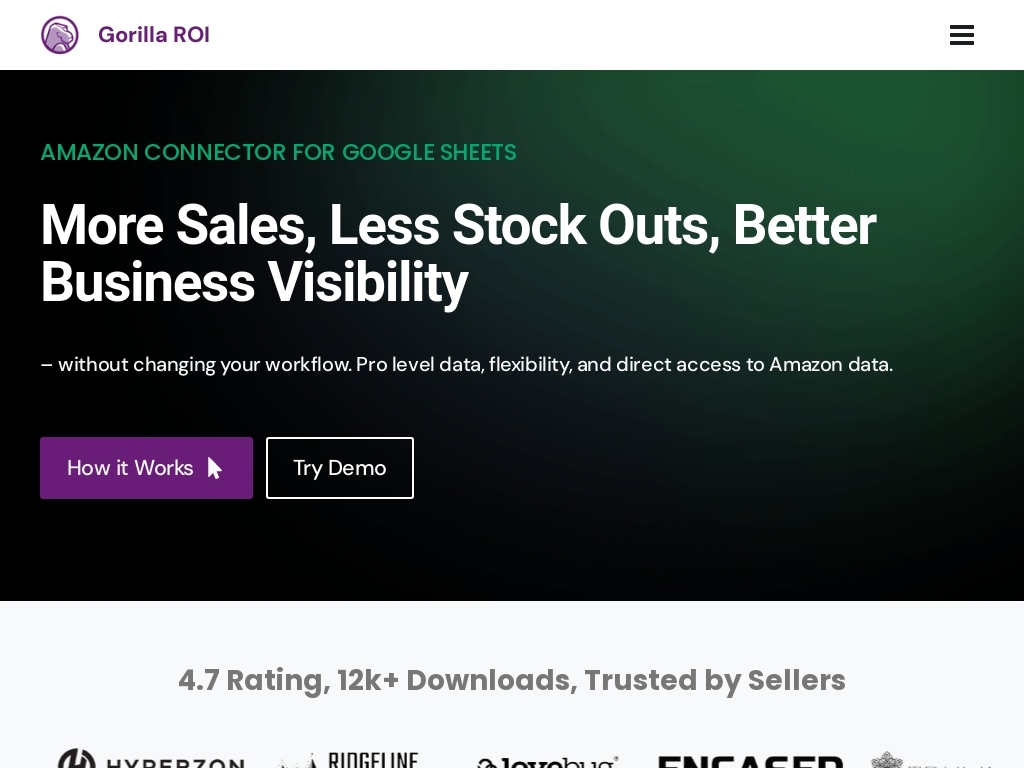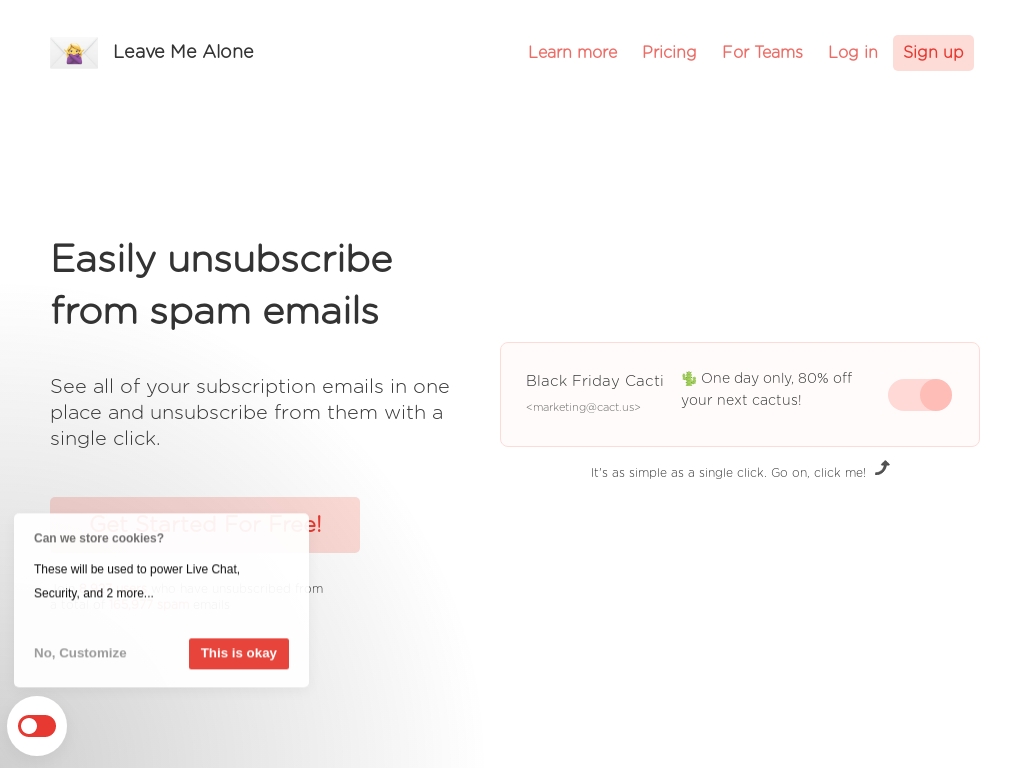
How Steve Built Flow Voice Notes App to $30K MRR in Months
Who is Steve?
The founder of Flow, Steve, is a seasoned tech developer passionate about creating technology that enhances people’s lives, and he teamed up with Paris, a fractional Chief Marketing Officer, who sought a better way to manage her mental load and stimulate creativity.
What problem does Flow: Voice Notes solve?
Flow solves the problem of overwhelming mental clutter by organizing and summarizing spoken ideas, helping creative individuals quickly turn thoughts into organized action plans.
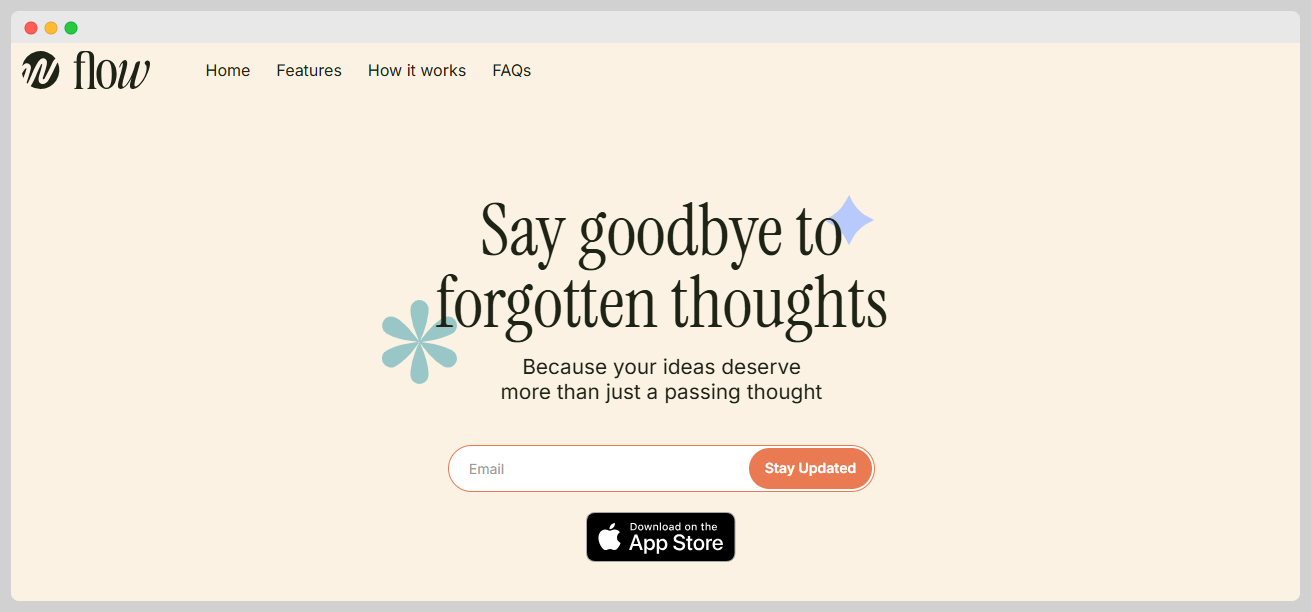
How did Steve come up with the idea for Flow: Voice Notes?
The idea for Flow stemmed from personal experiences of Paris, who was overwhelmed by an ever-growing mental load during a challenging period in her life. She realized how difficult it was to organize and act on her thoughts and ideas, particularly in between her busy schedule as a fractional Chief Marketing Officer. Paris found existing tools insufficient as they lacked features to seamlessly organize thoughts and boost creativity.
In collaboration with Steve, a tech developer who shared her vision, they identified a common need among creatives to capture, organize, and build on ideas more effectively. They conducted extensive research and tested other products, noticing a gap in the market for a tool that both inspired creativity and provided a user-friendly experience. Through feedback and iterative design, Paris and Steve turned their personal and professional insights into an app that not only declutters the mind but also turns thoughts into actionable items, embodying a true creative companion.
How did Steve build the initial version of Flow: Voice Notes?
Flow was built by co-founders Paris and Steve through a rigorous development process that entailed iterative design and extensive research into existing products. They employed the Kotlin Multiplatform framework to ensure the app's availability on multiple platforms such as iOS and Android while maintaining a native feel for users. The development involved creating a strong AI transcription engine using models like Claude and ChatGPT, combined with secure client-side encryption for privacy using AES-256. The initial build of Flow involved wireframing and high-fidelity design iterations, focusing on capturing and organizing voice notes, and it took several months of prototyping and testing to refine these features. The team faced challenges due to Kotlin Multiplatform's novelty, requiring them to extend existing frameworks, as well as the fast-paced nature of AI technology, which demanded frequent upgrades to their AI services.
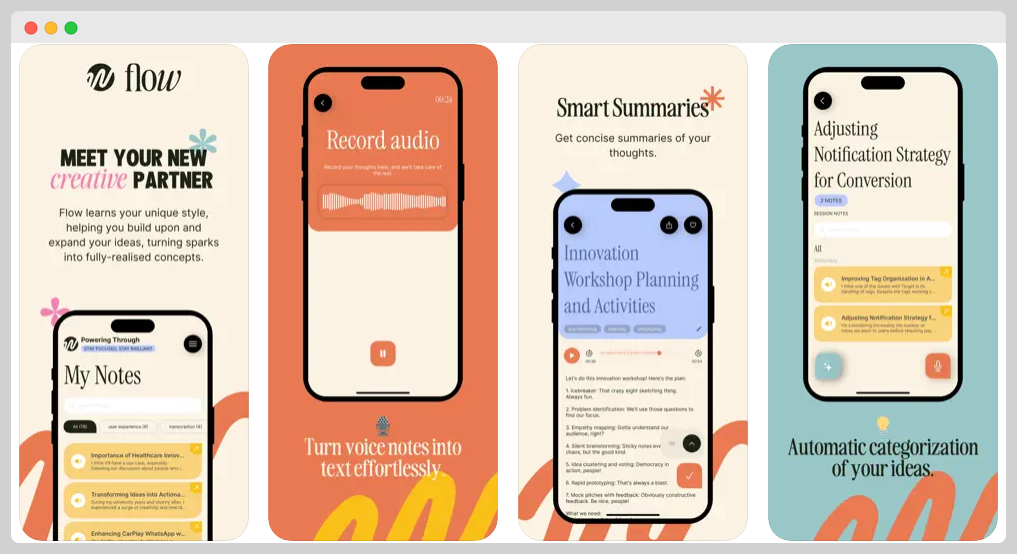
What was the growth strategy for Flow: Voice Notes and how did they scale?
Community Engagement on Reddit
Flow's founders actively participated in Reddit communities, specifically on subreddits like r/ProductivityApps and r/indiebiz. They engaged with users by introducing Flow and its features, highlighting its unique selling points like AI-driven voice note organization and creative enhancement. The founders used these platforms to answer questions directly, gather user feedback, and build a community around the app.
Why it worked: Reddit allowed Flow to engage directly with potential users who are already interested in productivity apps. It created a platform for authentic discussions, allowing the founders to receive immediate feedback and adapt their product accordingly. This approach also helped in building a loyal base of early adopters who contributed to word-of-mouth marketing.
Freemium Pricing with Paid Features
Flow utilizes a freemium model, offering basic features for free while providing optional paid upgrades. Users can make unlimited voice notes and access advanced AI models with a subscription or one-time payment. This model entices users to try the app, and if they find value in it, they are more likely to pay for enhanced features.
Why it worked: The freemium model lowers the barrier to entry, allowing more people to try the app without the initial cost, which increases user adoption. As users become familiar with the benefits of the app, they might feel more compelled to upgrade, generating revenue for Flow.
User Feedback and Iteration
The founders of Flow emphasized building a strong feedback loop. They invited users to provide input on the app's features through direct communication, leading to refinements and new enhancements based on actual user needs. This process was conducted via app reviews and interactions on platforms like Reddit.
Why it worked: By actively seeking user feedback and iterating based on that feedback, Flow ensured its product continually evolved to meet the desires and needs of its user base. This approach not only helped in improving the app but also fostered a sense of community and customer satisfaction, enhancing user retention.
Word-of-Mouth and Testimonials
Flow capitalized on word-of-mouth marketing by encouraging satisfied customers to share their experiences. The personal stories of the co-founders resonated with users, helping to humanize the brand and build trust. Users were also encouraged to share their positive experiences, which naturally spread through their personal networks.
Why it worked: Personal testimonials and stories create emotional connections that traditional advertising cannot achieve. By leveraging authentic user experiences and founder stories, Flow attracted new users through trusted recommendations from peers, which is often more impactful than direct advertising.
What's the pricing strategy for Flow: Voice Notes?
Flow offers a free version with 2 voicenotes daily, while premium plans cost £4.99/month or £29.99 lifetime, featuring advanced AI tools.
What were the biggest lessons learned from building Flow: Voice Notes?
- Focus on Core Platform First: Building both iOS and Android simultaneously proved challenging. Prioritizing iOS allowed Flow to achieve a polished product, with plans to bring Android to the same standard next, illustrating the importance of focusing on one platform to perfect it before expanding.
- Leverage User Feedback for Improvement: Flow effectively used feedback from early testers, which contributed to quick iterations and improvements. Engaging with users early on can guide effective product enhancements.
- Adapt to Technological Advancements: The Flow team had to upgrade AI services multiple times due to rapid technological advancements. Staying adaptable and integrating the latest technology can enhance product offerings and maintain competitiveness.
- Embrace New Tools Despite Challenges: Utilizing Kotlin Multiplatform allowed Flow to share logic across platforms, despite needing to extend existing frameworks. This decision streamlines future updates and demonstrates the benefits of new technologies, even with initial hurdles.
- Privacy as a Selling Point: Flow prioritized user privacy, implementing local-first encryption, illustrating that respect for user data can differentiate a product and build trust.
Discover Similar Business Ideas Like Flow: Voice Notes
|
|
Idea
|
Revenue
|
|---|---|---|
|
Excelformulabot
|
AI tool turning text instructions into Excel formulas.
|
$23K
monthly
|
|
Outline Planner
|
iPad digital planner for organized productivity.
|
$3K
monthly
|
|
Session
|
Focus-enhancement app blocking digital distractions.
|
$8.33K
monthly
|
|
Parseur
|
Subscription service for automating email and document data extraction.
|
$40K
monthly
|
|
Gorilla ROI
|
Google Sheets add-on for Amazon sellers.
|
$23K
monthly
|
|
Leave Me Alone
|
"Tool to easily unsubscribe from unwanted emails."
|
$10K
monthly
|
|
The Word Counter
|
"Free online tool for word counting and writing aid."
|
$20K
monthly
|
More about Flow: Voice Notes:
Who is the owner of Flow: Voice Notes?
Steve is the founder of Flow: Voice Notes.
When did Steve start Flow: Voice Notes?
2024
What is Steve's net worth?
Steve's business makes an average of $30K/month.
How much money has Steve made from Flow: Voice Notes?
Steve started the business in 2024, and currently makes an average of $360K/year.

Download the report and join our email newsletter packed with business ideas and money-making opportunities, backed by real-life case studies.

Download the report and join our email newsletter packed with business ideas and money-making opportunities, backed by real-life case studies.

Download the report and join our email newsletter packed with business ideas and money-making opportunities, backed by real-life case studies.

Download the report and join our email newsletter packed with business ideas and money-making opportunities, backed by real-life case studies.

Download the report and join our email newsletter packed with business ideas and money-making opportunities, backed by real-life case studies.

Download the report and join our email newsletter packed with business ideas and money-making opportunities, backed by real-life case studies.

Download the report and join our email newsletter packed with business ideas and money-making opportunities, backed by real-life case studies.

Download the report and join our email newsletter packed with business ideas and money-making opportunities, backed by real-life case studies.
